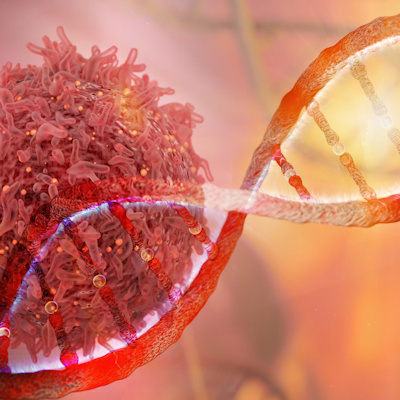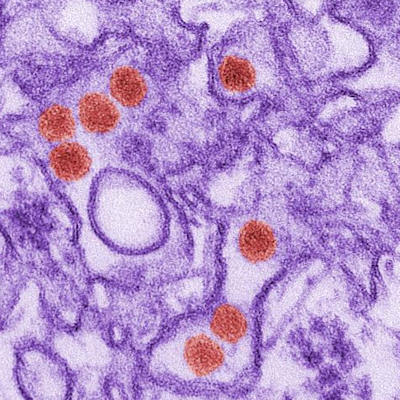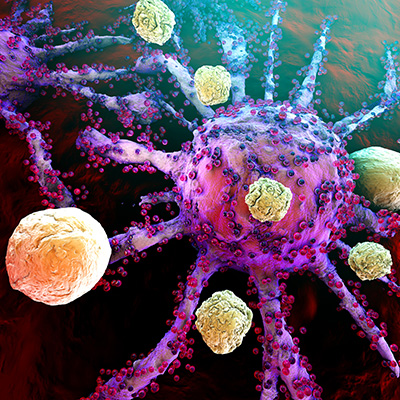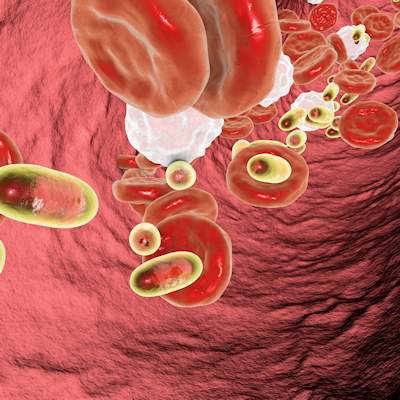 Boosting TERRA levels damages DNA of hard-to-kill cancer cells: study
Boosting TERRA levels damages DNA of hard-to-kill cancer cells: study
Increasing levels of telomeric repeat-containing RNA (TERRA) damages the DNA of cancers with a particular form of replicative immortality and leads to cell death, according to Portuguese researchers who show that “anti-aging clocks” can be used to kill cancer cells. Read More
 Machine learning may accelerate solutions to address protein design challenges
Machine learning may accelerate solutions to address protein design challenges
Machine learning can be used to create protein molecules much more accurately and quickly than previously possible, with the potential for developing new treatments and vaccines, according to biologists at the University of Washington School of Medicine. Read More
 Genomics profiling reveals how Zika infects immune cells, suggests antiviral target
Genomics profiling reveals how Zika infects immune cells, suggests antiviral target
A genomics profiling method has revealed how the Zika virus infects human dendritic cells, pointing to a potential target for therapeutic suppression of the pathogen. Read More
 MIT team finds limitations of AlphaFold’s AI protein structures in drug discovery
MIT team finds limitations of AlphaFold’s AI protein structures in drug discovery
Advances in the modeling of protein-ligand interactions are needed to realize the potential of the artificial intelligence (AI) AlphaFold database of protein structure predictions in drug discovery, according to a new paper from researchers at the Massachusetts Institute of Technology (MIT). Read More
 Hormone therapy improves cognitive function in Down syndrome in small pilot study
Hormone therapy improves cognitive function in Down syndrome in small pilot study
Subcutaneous doses of gonadotropin-releasing hormone, a master molecule that controls reproduction, may improve cognitive function in men with Down syndrome, according to results of a small pilot study built on research in mice. Read More
 Multiomics analysis reveals potential opportunity for early intervention in Alzheimer’s
Multiomics analysis reveals potential opportunity for early intervention in Alzheimer’s
A gene that carries a strong risk for Alzheimer’s disease drives changes in the brain’s blood vessels that lead to problems in synapses and ultimately cognitive dysfunction, according to a study in mice. Read More
 Imaging technique reveals previously unseen nanostructures in brain tissue
Imaging technique reveals previously unseen nanostructures in brain tissue
Swellable hydrogels have enabled researchers to “decrowd” biomolecular structures in cells and tissues, revealing previously hidden nanostructures and providing imaging of the structure of Alzheimer’s-linked amyloid beta plaques in greater detail than has been possible before. Read More
 Blocking key enzyme boosts anticancer T-cell responses, resistance to immunosuppression
Blocking key enzyme boosts anticancer T-cell responses, resistance to immunosuppression
Blocking a key enzyme boosts anticancer T-cell responses and resistance to immunosuppression, according to a mice study from LSU Health New Orleans published August 26 in Frontiers in Immunology. Read More
 Harvard’s Wyss Institute spins out protein detection technology to create Spear Bio
Harvard’s Wyss Institute spins out protein detection technology to create Spear Bio
The Wyss Institute for Biologically Inspired Engineering at Harvard University has licensed technology for detecting proteins in small patient samples to a newly formed startup. Read More
 Nanoparticles protect mice from blood vessel rupture, offers potential therapy for abdominal aortic aneurysms in humans
Nanoparticles protect mice from blood vessel rupture, offers potential therapy for abdominal aortic aneurysms in humans
Administration of small interfering RNA nanoparticles has protected mice from sudden death due to the rupture of a major blood vessel in the abdomen, setting the stage for research that could ultimately enable treatment for people at risk of life-threatening abdominal aortic aneurysm. Read More
Conferences
Science Briefs
Member Rewards
Earn points for contributing to market research. Redeem your points for merchandise, travel, or even to help your favorite charity.
Research Topics
Interact with an engaged, global community of your peers who come together to discuss their work and opportunities.
Conferences
Connect
Tweets by @ScienceBoard






